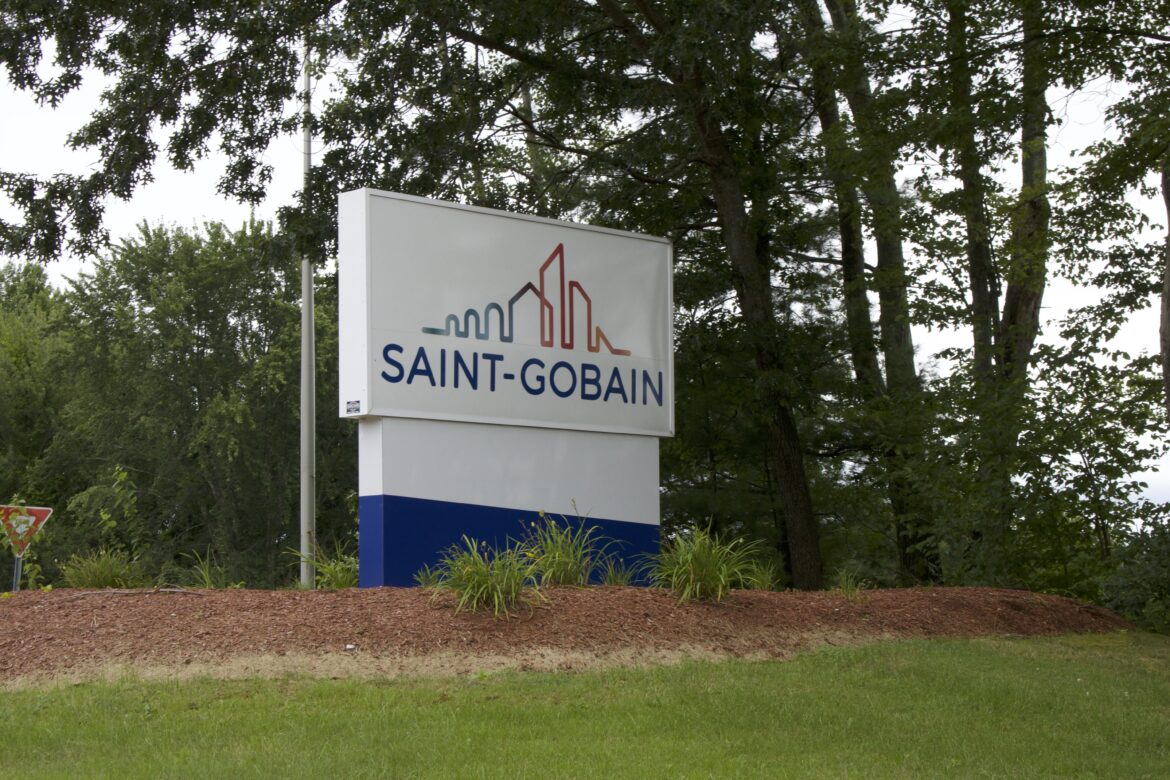By ANI FREEDMAN, InDepthNH.org
CONCORD – A new federal court ruling has granted class action status to part of the ongoing lawsuit against Saint-Gobain Performance Plastics, whose Merrimack facility polluted residents’ water supply with toxic PFAS.
The court’s decision granted the request for Saint-Gobain’s liability regarding trespass, negligence, and negligent failure to warn, but denied the claim for nuisance on the grounds that it would make a class treatment of the issues “unmanageable.”
Laurene Allen, a local advocate and cofounder of Merrimack Citizens for Clean Water, felt her cause was validated by the decision, but remains unsatisfied with the action taken against Saint-Gobain thus far.
“It’s great to see it, but it’s also really troubling because for coming up on eight years now, this has been front and center in my life,” Allen said. “The reason we have clean water now in Merrimack is we did it, and we paid for it.”
The lawsuit was originally filed back in 2016, after high levels of PFAS, or forever chemicals, were found in the Merrimack water supply.
Even though this was a win for the case against Saint-Gobain, Allen still believes that many Merrimack citizens are paying the repercussions for the company’s pollution, especially in regard to their health.
“We have no rights as to our health unless you are one of those homes with a private well above a certain amount [of contamination], that has certain health conditions, that you can then make your individual case,” Allen said. She believes the area of Saint-Gobain’s responsibility, agreed upon with the state in the consent decree they entered in 2018, is not wide enough to cover the amount of homes impacted by the pollution.
Last March, the state Supreme Court ruled that Saint-Gobain would not be responsible for medical monitoring costs incurred by those impacted by PFAS pollution in Merrimack.
The prosecuting attorneys argued that because of the links of PFAS to various chronic illnesses and cancers, Saint-Gobain should be responsible for the cost of medical monitoring to detect illnesses or diseases as a “compensable injury.”
The court ruled in Saint-Gobain’s favor. The company’s lawyers countered that New Hampshire law requires “present physical injury,” which the court agreed with, in its opinion stating: “Possibility [of injury] is insufficient to impose any liability or give rise to a cause of action.”
Allen said this decision further weakened the case against Saint-Gobain.
“That was the only part of the class action that applied to me,” Allen said. The medical monitoring claim would have included all residents who were on the Merrimack Village District Water Works system. Now, the case only includes those within the consent decree area. Though its class action status could mean those within the area see justice, Allen said the company is still not adequately taking responsibility for the health issues that PFAS have left Merrimack citizens with.
“All our needs could have been met in what they spent in the last six, seven, eight years,” Allen said.
A representative from Saint-Gobain issued the following statement in response to the ruling:
“We are aware of Judge LaPlante’s decisions and are currently reviewing them. We will continue to defend ourselves vigorously as the process continues.
“Our remediation commitments and actions in the Merrimack area continue as agreed with the State of New Hampshire, including water line extensions, POET installations, bottled water deliveries, and the building of new waterlines.”
The case will proceed in two phases from here, according to the court documents: the first will be focused on determining Saint-Gobain’s liability, and the second will address possible damages.
U.S. District Court Judge Joseph LaPlante’s ruling Dec. 29 said: “Absent the class action vehicle, individual plaintiffs would be forced to prove the same factual issues concerning, for example, the presence of contamination on their property, Saint-Gobain’s actions with respect to emissions and mitigation, and the hazards associated with PFOA.
“This would be both inefficient and costly, given that these issues are suitable to class-wide proof and require multiple expert opinions and extensive expert analysis. Thus, in this case, a class action “achieve[s] economies of time, effort, and expense, and promote[s] . . . uniformity of decision as to persons similarly situated, without sacrificing procedural fairness or bringing about other undesirable results.”





